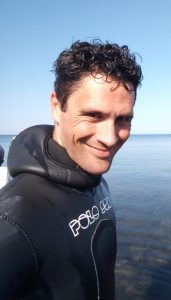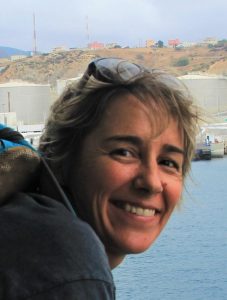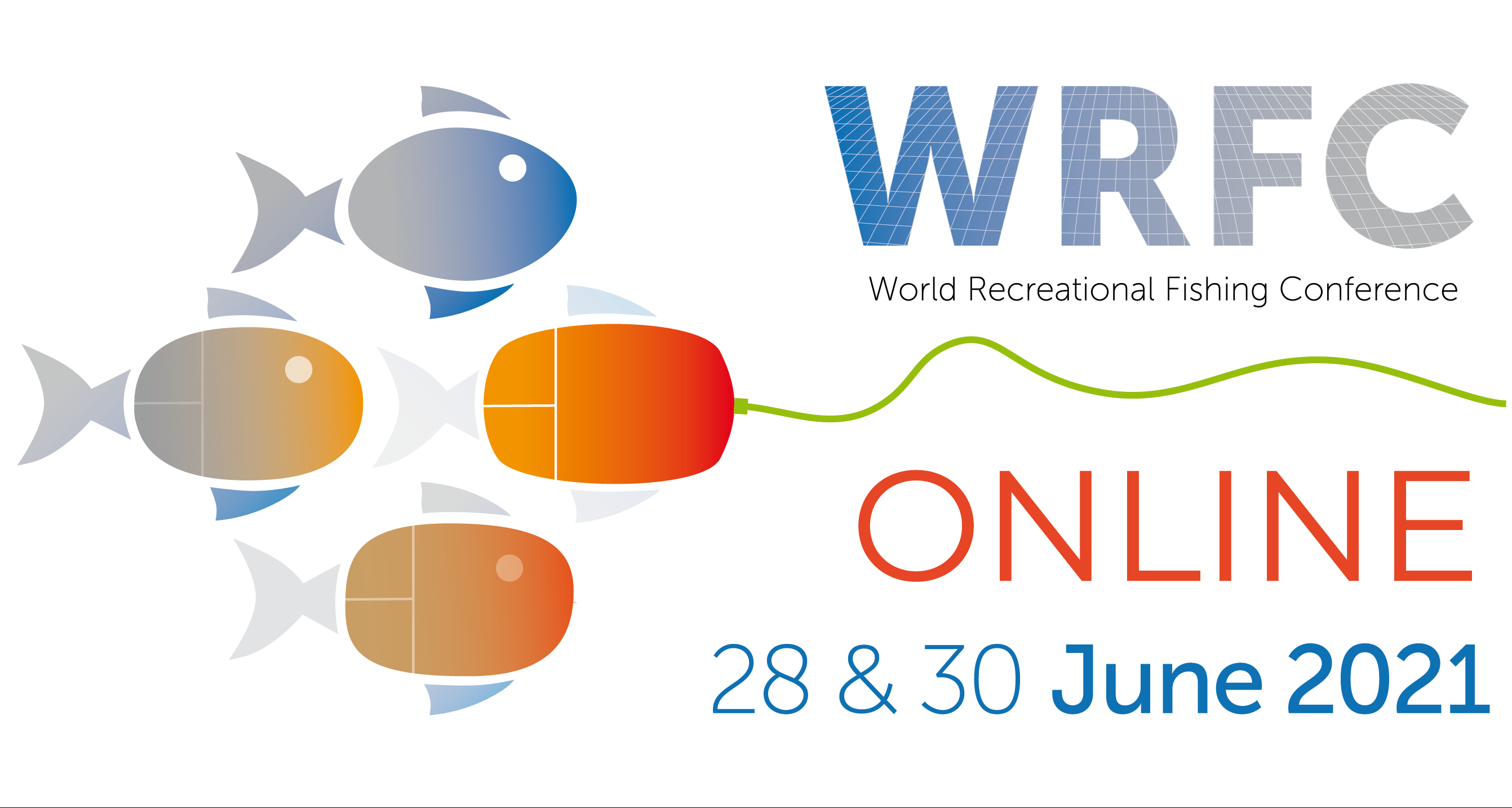Special sessions
You can find the preliminary porgram of the conference here now. In case anything changes we will upload the new program here as well. In the conference there will be two special sessions incorporated in the program.
On request there are two special sessions during the conference.
Spearfishing
This session will be organized in a special block, during the conference. A room will be available for exclusively for this special session.
This session will be chaired by Valerio Sbragaglia.
Recent scientific advances and future perspective of recreational spearfishing
Chair (Dr. Valerio Sbragaglia)
Recreational spearfishing is a globally popular recreational activity with important historical and social roots; it is a peculiar fishing activity more similar to hunting than to others fishing techniques. Despite recent research efforts, our current scientific knowledge on recreational spearfishing is still scarce compared to other recreational fishing techniques.
This session brings together interdisciplinary researchers to gather the last scientific advances on several aspects of recreational spearfishing around the globe and foster discussion on future research challenges. The session welcomes ecology-oriented, social-oriented as well as economic-oriented contributions. Citizen science projects with spearfishers are more than welcome as well. Examples of topics where contributions are welcome are:
– Effects of spearfishing on fish behavior
– Effects and possible solutions of size selectivity in spearfishing
– Social characterization of spearfishers’ population
– Spearfishing contests
– Spearfishers & social media
– Spearfishing impacts on the environment
– Spearfishers interactions with science
The main goal of this special session will be fostering collaboration of researchers in crystallizing social-ecological and evolutionary aspects of spearfishing in a review/conceptual paper. For more information you can contact Valerio Sbragaglia (valeriosbra@gmail.com).
 Valerio Sbragaglia has a PhD in marine science and he is a passionate spearfisher since he was a child. He grew up in front of the sea and he has been always attracted by the underwater life. His passion for recreational fishing strongly influenced his decision to pursue a research career in marine science. He got his PhD at the Marine Science Institute of Barcelona (ICM-CSIC) and then moved to Berlin where he developed experimental research on fisheries-induced evolution of behavior in the group led by Prof. Dr. Robert Arlinghaus at the Department of Biology and Ecology of fishes of the Leibniz-Institute of Freshwater Ecology and Inland Fisheries (IGB). He is actually a Juan de la Cierva Fellow at ICM-CSIC. His main research interests are related to behavioral ecology, evolutionary ecology and chronobiology, but he is also strongly interested in transdisciplinary aspects related to spearfishing. Moreover, he is extremely active in creating bridges between the spearfishing and the scientific worlds (http://spearfishinglab.org/).
Valerio Sbragaglia has a PhD in marine science and he is a passionate spearfisher since he was a child. He grew up in front of the sea and he has been always attracted by the underwater life. His passion for recreational fishing strongly influenced his decision to pursue a research career in marine science. He got his PhD at the Marine Science Institute of Barcelona (ICM-CSIC) and then moved to Berlin where he developed experimental research on fisheries-induced evolution of behavior in the group led by Prof. Dr. Robert Arlinghaus at the Department of Biology and Ecology of fishes of the Leibniz-Institute of Freshwater Ecology and Inland Fisheries (IGB). He is actually a Juan de la Cierva Fellow at ICM-CSIC. His main research interests are related to behavioral ecology, evolutionary ecology and chronobiology, but he is also strongly interested in transdisciplinary aspects related to spearfishing. Moreover, he is extremely active in creating bridges between the spearfishing and the scientific worlds (http://spearfishinglab.org/).

Foto by Jordi Chias

Marine recreational fishing
Marine Recreational Fisheries in the Mediterranean and Southern European Coasts
This session will be organized during the conference where a room and timeslot will be exclusively for this special session.
Outline:
Marine angling and spear fishing are culturally and socially relevant recreational activities in southern European countries, from the NE Atlantic throughout the Mediterranean coasts. These activities generally provide an additional source of seafood for many practitioners, since catch and release is not a widespread practice in the region. Moreover, marine recreational fisheries (MRF) compete with commercial small-scale fisheries for progressively scarcer fish stocks and conflicts are frequent, especially where some recreational fishers illegally sell their catches. Although it has been historically assumed that marine recreational fishers have relatively low economic and ecologic impacts, there are increasing evidences that MRF catches can be compared to those of the commercial sector, in particular for some high value commercial species such as the European sea bass and sea breams (Sparidae). In addition, some recreational fishing activities (e.g., spear fishing) target large fish with high reproductive value (“megaspawners”), and vulnerable top predators, which may have significant impacts at the community and ecosystem level. On the other hand, direct and indirect expenses from recreational fishing have an important contribution to local economies.
Despite the significant increase in research on MRF, large scale studies are still not conducted on a regular basis, which has resulted in insufficient data to properly manage these fisheries and the respective resources. Furthermore, given the multi-species nature of recreational fishing in the Mediterranean and southern European waters, most of the sought after and caught species in the region are not included in the list of species for which information on recreational catches is mandatory under the EU’s “Data Collection Framework”. Lack of regular monitoring and assessment of MRF catches for the species will result in increased uncertainty around the fishing pressure and the status of the respective stocks, ultimately hindering effective fisheries management.
This session will focus on biological, ecological, socio-economic, data collection, conservation and management aspects of recreational fisheries in the Mediterranean and the SW coast of Europe.
The session will be chaired by:
Mafalde Rangel, post-doc researcher at CCMAR, Centre of Marine Sciences
University of Algarve, Portugal
Co-chairs will be (pending on the number of presentations): Pedro Veiga (Portugal), Pablo Pita (Spain) and Anastasios Papadopoulos (Greece).
 Mafalda Rangel has a Ph.D. in Fisheries Sciences and Technology from the University of Algarve and has been a member of the Fisheries, Biodiversity and Conservation (FBC) group of the Centre of Marine Sciences of Algarve (CCMAR) for over 15 years. Over the years she has been involved in several European and national fisheries projects, focusing on management processes, socioeconomics of fisheries management, and stakeholder involvement. She started the systematic study of MRF in Portugal in 2003, carrying out the first comprehensive analysis of shore-based angling in the country. Mafalda is currently conducting a post-doctoral six years project on recreational boat angling and spear fishing in southern mainland Portugal (2017-2023), during which she coordinated the “Pescardata” project (2018), the first nationwide study on Marine Recreational Fisheries in Portugal. Her studies on MRF focus on different aspects of the activity, including mapping, defining socio-economic impacts, understanding opinions and perceptions of users, promoting stakeholders’ interaction processes, and estimating fishing effort. Her main aim is to improve scientific knowledge on this activity and to contribute to sustainable integrated management. She is a permanent member of the ICES Working Group on Recreational Fisheries Surveys (WGRFS).
Mafalda Rangel has a Ph.D. in Fisheries Sciences and Technology from the University of Algarve and has been a member of the Fisheries, Biodiversity and Conservation (FBC) group of the Centre of Marine Sciences of Algarve (CCMAR) for over 15 years. Over the years she has been involved in several European and national fisheries projects, focusing on management processes, socioeconomics of fisheries management, and stakeholder involvement. She started the systematic study of MRF in Portugal in 2003, carrying out the first comprehensive analysis of shore-based angling in the country. Mafalda is currently conducting a post-doctoral six years project on recreational boat angling and spear fishing in southern mainland Portugal (2017-2023), during which she coordinated the “Pescardata” project (2018), the first nationwide study on Marine Recreational Fisheries in Portugal. Her studies on MRF focus on different aspects of the activity, including mapping, defining socio-economic impacts, understanding opinions and perceptions of users, promoting stakeholders’ interaction processes, and estimating fishing effort. Her main aim is to improve scientific knowledge on this activity and to contribute to sustainable integrated management. She is a permanent member of the ICES Working Group on Recreational Fisheries Surveys (WGRFS).
